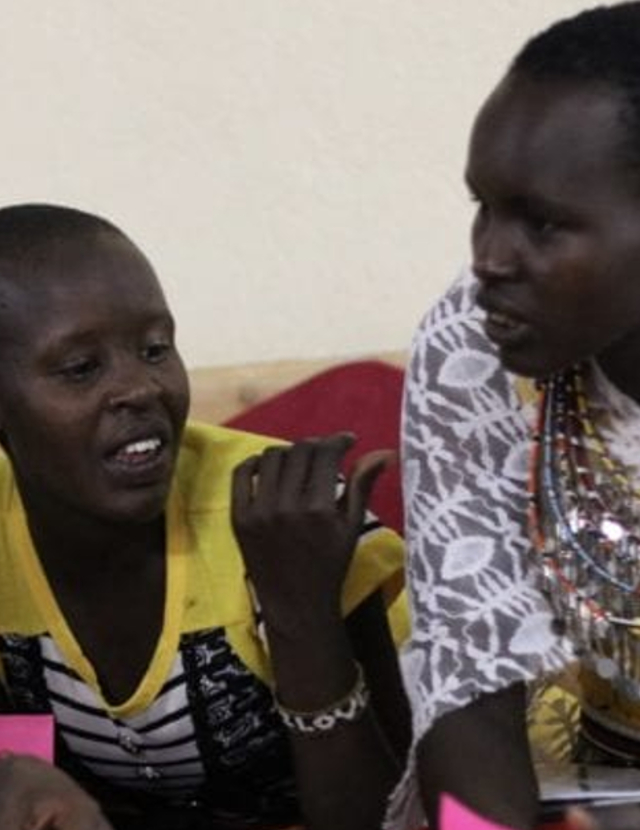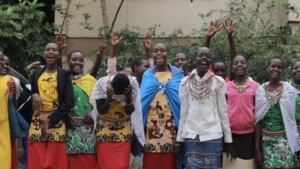Kenyan Girl Leaders Mobilize to Pass Anti-Female Genital Mutilation Policy
Program
Highlights

In Kenya, Girl Leaders working with PHI's Rise Up program won legal protection in Kajiado County from female genital mutilation and commitments from their County Assembly to increase access to adolescent health services, increase support for sexual health services, and provide more scholarships for girls' education.
150K Kenyan girls won legal protection from female genital mutilation
-
Focus Areas
Women, Youth & Children -
Issues
Reproductive & Sexual Health -
Expertise
Leadership Development
Female genital mutilation (FGM) remains common in areas of Kenya, despite a 2011 Female Genital Mutilation Act that prohibits the practice. In Kajiado County, Kenya, about 73% of women and girls undergo female genital mutilation.
Through Rise Up’s partnership with the Center for the Study of Adolescence (CSA), their Girls’ Voices Initiative (GVI) enables Kenyan girls to learn about girl-centered advocacy, leadership, and advocacy and to develop their own strategies to improve their lives. Following a five-day intensive Rise Up workshop, in 2021 the 24 girl leaders developed action plans to influence key decision-makers in Kajiado West County to fully implement the Female Genital Mutilation Act.
 The GVI leaders mobilized 160 girls in Kajiado West County schools to demand their rights and rally support from the school chairmen, teachers and boys, and from key chiefs and village elders to get them to join their cause. Three GVI leaders were then invited to a meeting with the Members of the County Assembly, where they highlighted the risks of FGM and its links to higher rates of child marriage and school dropout for girls.
The GVI leaders mobilized 160 girls in Kajiado West County schools to demand their rights and rally support from the school chairmen, teachers and boys, and from key chiefs and village elders to get them to join their cause. Three GVI leaders were then invited to a meeting with the Members of the County Assembly, where they highlighted the risks of FGM and its links to higher rates of child marriage and school dropout for girls.
Their advocacy resulted in the Members of the County Assembly committing to the implementation the FGM Act in Kajiado County and signing the Kajiado accord, which commits to:
- Increasing the percentage of healthcare facilities providing comprehensive adolescent and youth-friendly services.
- Increasing the budgetary allocation for sexual health and reproductive rights services to youth and adolescents.
- Increasing the budget for girls’ education and scholarships.
The Assembly also committed to continuing discussions with girl leaders and the girls in the community to help them create more effective and holistic solutions to improve their lives and protect their rights. As the GVI girl leaders continue their advocacy action plans, they have the potential to improve the lives of over 150,000 adolescent girls across Kajiado West County by protecting their rights and improving their access to sexual and reproductive health and education.
Work With Us
You change the world. We do the rest. Explore fiscal sponsorship at PHI.
Support Us
Together, we can accelerate our response to public health’s most critical issues.
Find Employment
Begin your career at the Public Health Institute.
